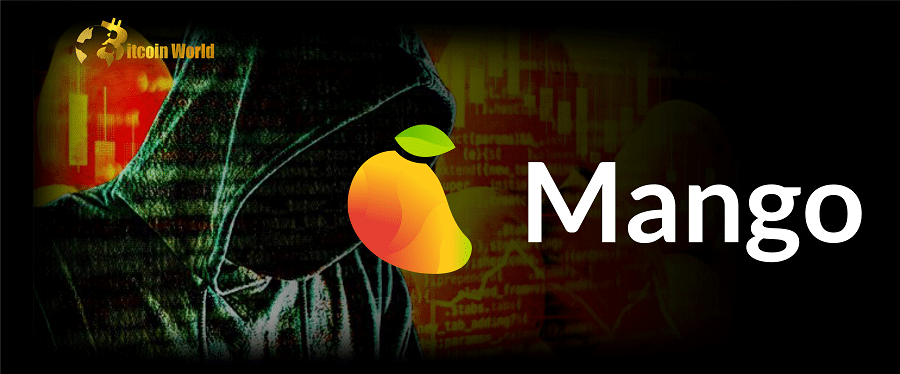Remember the $110 million Mango Markets heist that shook the crypto world back in October? Well, the story just took a dramatic turn. Avraham Eisenberg, the crypto trader who infamously described his actions as “legal open market actions,” has been arrested in Puerto Rico. But was it really just a clever trading strategy, or something far more sinister? Let’s dive into the details of this fascinating case that has everyone in the crypto community talking.
The Mango Markets Exploit: From ‘Legal’ to Illegal?
On October 11th, Mango Markets, a decentralized cryptocurrency exchange, experienced a massive exploit. At the heart of it was Avraham Eisenberg, who allegedly manipulated the platform to his advantage. Here’s a breakdown of how it unfolded:
- Price Manipulation: Eisenberg and his team allegedly artificially inflated the price of Mango Markets’ native token, MNGO, against USD Coin. Think of it like pushing up the price of a stock, but in the crypto world.
- Inflated Collateral: With the MNGO price artificially pumped up, Eisenberg used this inflated value as collateral. Imagine using a temporarily inflated asset as security for a huge loan.
- Massive Loans & Drain: Leveraging this inflated collateral, Eisenberg’s team reportedly took out “massive loans,” draining Mango Markets’ treasury of approximately $110 million in various cryptocurrencies. It was like borrowing against thin air.
- The Aftermath: Mango Markets was left with a significant hole, and naturally, investors were heavily impacted.
Initially, Eisenberg downplayed the incident, claiming it was simply a “highly profitable trading strategy” and within the bounds of “legal open market actions.” This sparked intense debate within the crypto community – was this a clever exploit of DeFi mechanics, or outright manipulation?
Negotiations and Partial Return: A Glimmer of Hope?
In the days following the exploit, Mango Markets initiated negotiations with Eisenberg. Interestingly, some funds were actually returned:
- Negotiations Begin: Starting on October 12th, Mango Markets engaged in discussions with Eisenberg to recover the stolen funds.
- Partial Recovery: By October 15th, Mango Markets confirmed the return of $67 million in various crypto assets. This was a partial win, but still left a significant amount missing.
- Public Admission: Eisenberg publicly admitted his involvement, reiterating his stance that his actions were legitimate trading strategies.
While the return of a portion of the funds offered some relief, the question of legality and ethical boundaries remained a burning issue.
FBI Steps In: From Exploit to Federal Charges
The story took a serious turn when law enforcement got involved. The FBI launched an investigation, and their findings paint a very different picture from Eisenberg’s “legal trading” claim.
- FBI Complaint: The FBI filed a complaint, unsealed on December 27th, charging Eisenberg with commodities fraud and commodities manipulation. These are serious federal charges.
- Intentional Manipulation: According to the FBI, Eisenberg “willfully and knowingly” engaged in a scheme to artificially manipulate the price of perpetual futures on Mango Markets. This directly contradicts his “legal trading” defense.
- Investor Losses: The complaint highlighted the real-world impact, stating that “other investors with deposits on Mango Markets lost much, or all, of those deposits” due to Eisenberg’s actions.
Flight Risk? Eisenberg’s Trip to Israel
Adding another layer of intrigue, the FBI complaint suggests Eisenberg may have been aware of the potential legal ramifications of his actions.
- Post-Exploit Flight: The day after the Mango Markets exploit, Eisenberg reportedly flew from the United States to Israel.
- Avoiding Arrest? The FBI special agent stated that “based on the timing of the flight, it appears that the travel was an attempt to avoid arrest by law enforcement.” This raises questions about Eisenberg’s awareness of the illegality of his actions.
Arrest in Puerto Rico: Justice Catching Up?
Despite the alleged attempt to evade authorities, Eisenberg’s time on the run appears to be over.
- Arrest in Puerto Rico: On December 26th, Eisenberg was arrested in Puerto Rico, according to a filing from the United States Attorney’s Office for the Southern District of New York.
- Facing Charges: He now faces serious charges of commodities fraud and market manipulation, which could carry significant penalties if he is convicted.
What Does This Mean for Crypto and DeFi?
The arrest of Avraham Eisenberg sends a strong message to the crypto world, particularly the DeFi space. Here are some key takeaways:
- DeFi is Not Lawless: Despite the decentralized nature of DeFi, traditional legal frameworks are catching up. Actions within DeFi are not immune to regulatory scrutiny and potential criminal charges.
- Market Manipulation is a Crime: Whether in traditional finance or crypto, manipulating markets for personal gain at the expense of others is illegal. The Eisenberg case underscores this principle.
- Security and Audits are Crucial: The Mango Markets exploit highlights the ongoing need for robust security measures and thorough audits in DeFi protocols to prevent such incidents.
- Investor Protection Matters: The losses suffered by Mango Markets investors emphasize the importance of investor protection, even in decentralized environments. Regulatory bodies are likely to pay closer attention to this aspect.
Conclusion: The Line Between Clever Trading and Crime
The Avraham Eisenberg case is a landmark moment in the evolving landscape of cryptocurrency and decentralized finance. It forces us to confront the complex question: where is the line between innovative trading strategies and illegal market manipulation? While Eisenberg initially portrayed his actions as legitimate, the FBI and federal prosecutors clearly see it differently. As the case unfolds, it will undoubtedly have significant implications for the future of DeFi regulation and the perception of risk and responsibility within the crypto ecosystem. Stay tuned, because this story is far from over.
Disclaimer: The information provided is not trading advice, Bitcoinworld.co.in holds no liability for any investments made based on the information provided on this page. We strongly recommend independent research and/or consultation with a qualified professional before making any investment decisions.


